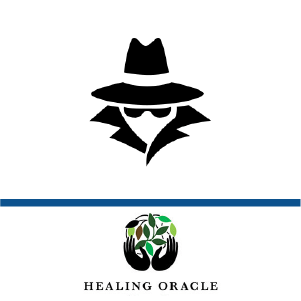

FULL CLAIM: Cancer is Candida/Fungus and can be cured
REVIEW
The article containing this claim was published in March 2019 but recently went viral on Facebook, receiving more than 1 million views and 60,000 shares over the past three months. It claims that “cancer is Candida/fungus and can be cured”. Similar or identical claims have been published on numerous other “alternative medicine” websites.
The claim originates from Tullio Simoncini, a former physician who was struck off Italy’s medical register and convicted of manslaughter after attempting to treat a patient’s brain tumor with sodium bicarbonate (baking soda), which ultimately resulted in the patient’s death. According to the American Cancer Society, “Some people with cancer have other health conditions for which sodium bicarbonate is used. But … there is no evidence that sodium bicarbonate has caused their tumors to shrink.” Sodium bicarbonate has demonstrated no clinical efficacy against cancer in humans.
The statement that cancer cells are actually cells of the Candida fungus or another type of fungus is false. Cancer results from genetic mutations, or occasionally inherited genetic anomalies, within the body’s own cells that lead to uncontrolled cell growth[1]. Scientists can easily distinguish between human and fungal cells in many ways, for example by examining the cells’ physical characteristics using microscopy, as well as by sequencing their genomes.
Candida albicans is the most common Candida species colonizing the human body and a significant member of the skin and gastrointestinal microbiota[2,3,4]. This species is present in approximately 30 – 70% of healthy people at any given time[3]. C. albicans does not typically cause problems in colonized individuals, although an overgrowth can result in superficial, localized infections such as thrush and vulvovaginal candidiasis—commonly known as a yeast infection—in otherwise healthy people[5].
Patients with weakened immune systems, such as those with cancer[6] or AIDS[7], can suffer more serious and potentially lethal infections called systemic candidiasis. Crude mortality rates for systemic candidiasis is relatively high, ranging between 30 – 40%[8,9,10,11].
The claim article further states that both cancer cells and Candida cells are white and that this proves that cancer is a Candida fungus. Colonies of C. albicans cells can indeed appear white in color, and on rare occasions, gray. Yet the article’s assertion that “cancer cells are white” is false. The cells of the human body, including cancer cells, are typically colorless and transparent, with few exceptions such as red blood cells.
Some fungal species, although not Candida, have been found to produce carcinogenic mycotoxins, such as aflatoxins. However, aflatoxins are only produced by Aspergillus fungi, which belong to a different genus from C. albicans. The only toxin C. albicans has been definitively shown to produce is candidalysin[12,13]. Although candidalysin is a crucial component for initiating infection, it is not a known carcinogen.
In summary, the article’s claim that cancer cells are cells of Candida fungi or other types of fungi is false. Finally, there is no evidence in the scientific literature to support the article’s claim that sodium bicarbonate (baking soda) can cure cancer.
REFERENCES
- 1 – Hanahan and Weinberg. (2011) Hallmarks of Cancer: The Next Generation. Cell.
- 2 – Underhill and Iliev. (2014) The mycobiota: interactions between commensal fungi and the host immune system. Nature Reviews Immunology.
- 3 – Xu et al. (1999) Species and genotypic diversities and similarities of pathogenic yeasts colonizing women. Journal of Clinical Microbiology.
- 4 – Kam and Xu. (2002) Diversity of commensal yeasts within and among healthy hosts. Diagnostic Microbiology and Infectious Diseases.
- 5 – Gow et al. (2011) Candida albicans morphogenesis and host defence: discriminating invasion from colonization. Nature Reviews Microbiology.
- 6 – Teoh and Pavelka. (2016) How Chemotherapy Increases the Risk of Systemic Candidiasis in Cancer Patients: Current Paradigm and Future Directions. Pathogens.
- 7 – Brown et al. (2012) Hidden Killers: Human Fungal Infections. Science Translational Medicine.
- 8 – Pfaller et al. (2012) Epidemiology and outcomes of candidemia in 3648 patients: data from the Prospective Antifungal Therapy (PATH Alliance(R)) registry, 2004-2008. Diagnostic Microbiology and Infectious Diseases.
- 9 – Das et al. (2011) Epidemiology, clinical characteristics, and outcome of candidemia: experience in a tertiary referral center in the UK. International Journal of Infectious Diseases.
- 10 – Ortega et al. (2011) Candida species bloodstream infection: epidemiology and outcome in a single institution from 1991 to 2008. Journal of Hospital Infection.
- 11 – Bassetti et al. (2013) Epidemiology, species distribution, antifungal susceptibility, and outcome of candidemia across five sites in Italy and Spain. Journal of Clinical Microbiology.
- 12 – Moyes et al. (2016) Candidalysin is a fungal peptide toxin critical for mucosal infection. Nature.
- 13 – Naglik et al. (2019) Candidalysin: discovery and function in Candida albicans infections. Current Opinion in Microbiology.


